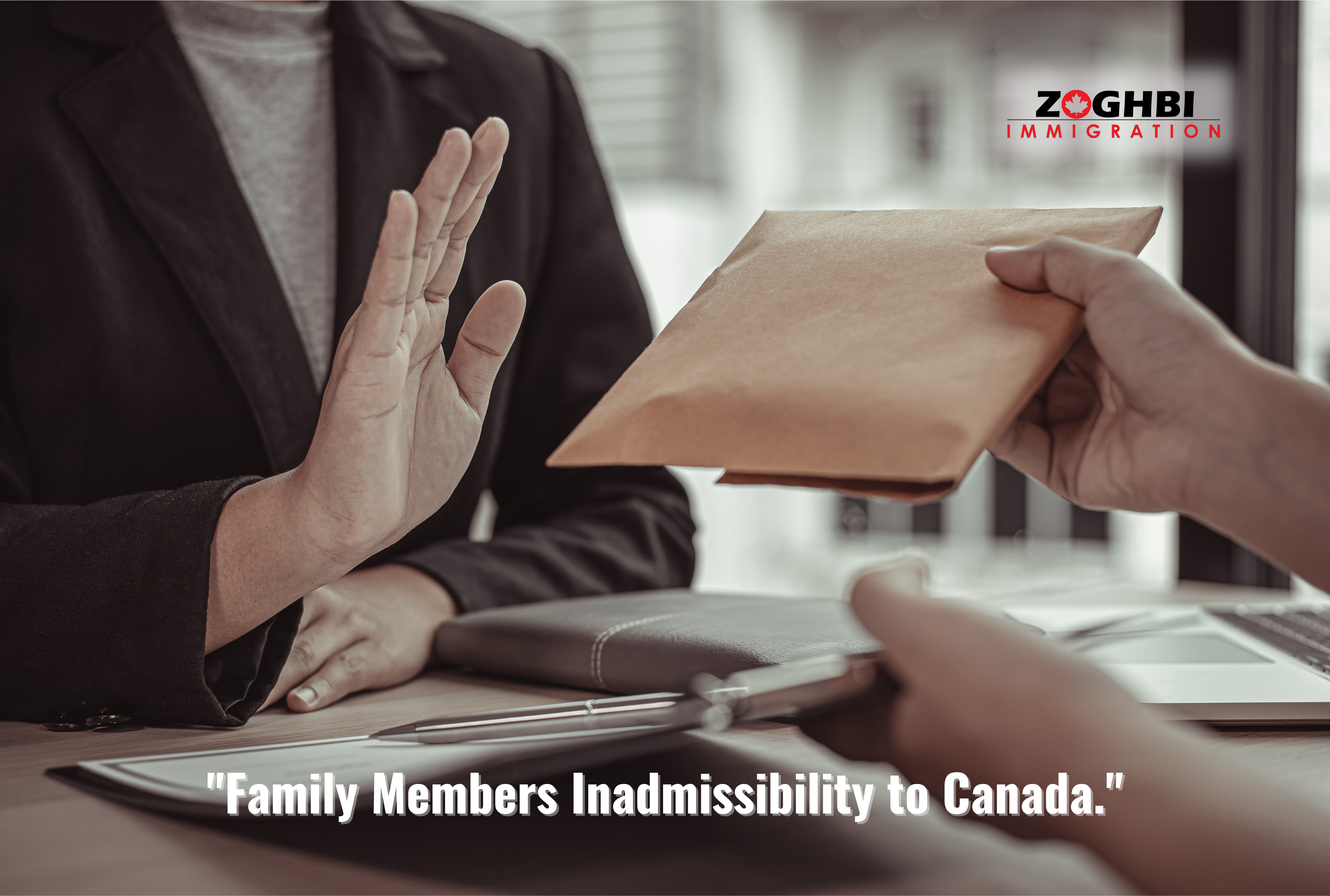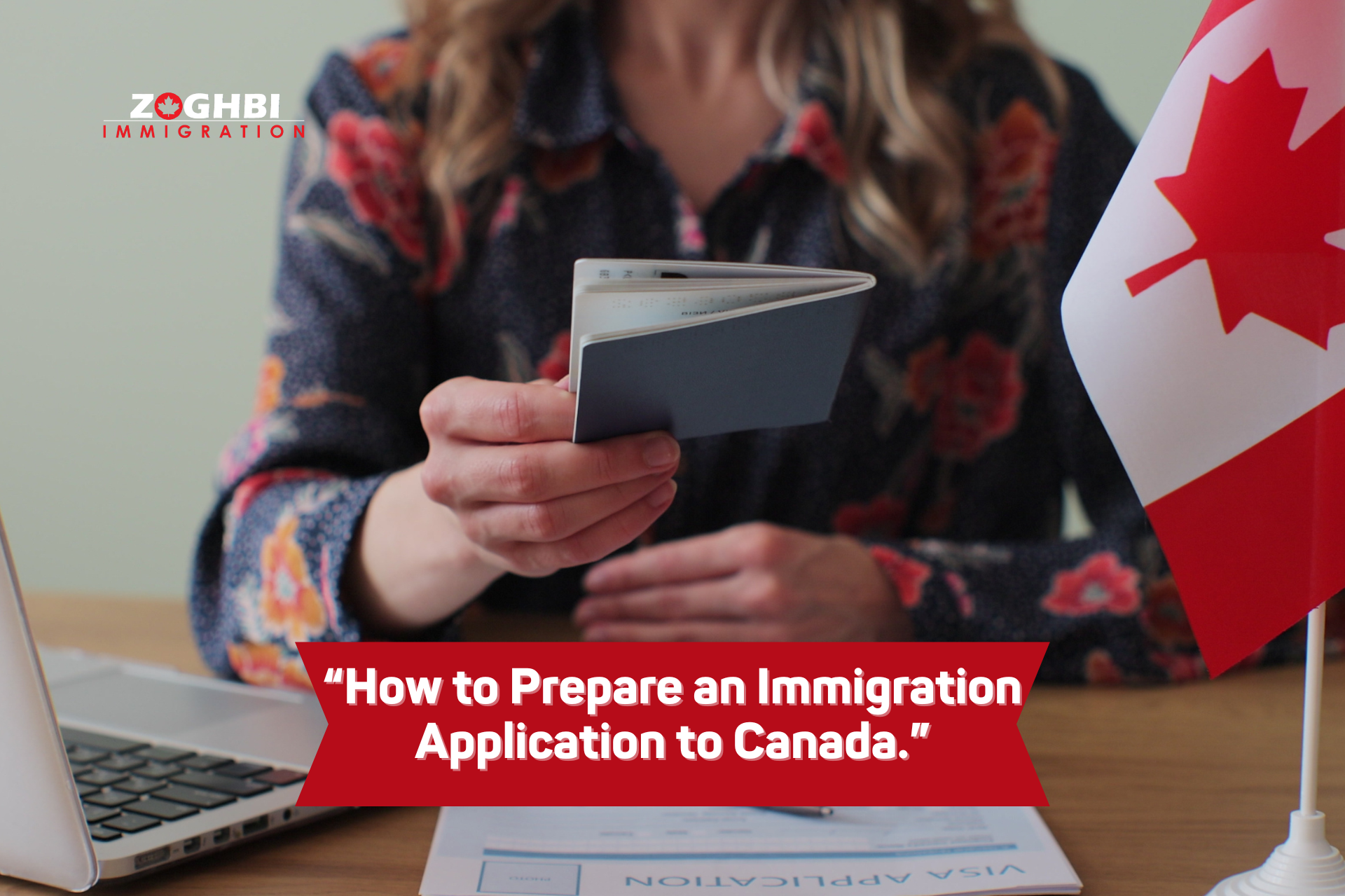Family Members Inadmissibility to Canada
عدم قبول أفراد العائلة في كندا
المقال مترجم للعربية بالأسفل
Canada places a strong emphasis on ensuring the admissibility of foreign nationals to maintain the safety and security of its borders. Immigration, Refugees and Citizenship Canada (IRCC) and the Canadian Border Services Agency (CBSA) play crucial roles in evaluating potential risks and denying entry to individuals who may pose a threat. One significant aspect of admissibility is the examination of family members accompanying or associated with immigration candidates, and this article explores the factors that may lead to inadmissibility and the available options to overcome such challenges.
Understanding Inadmissibility:
Foreign nationals can be deemed inadmissible for various reasons, including criminal or security concerns and medical conditions posing a risk to public health or safety. The scope of inadmissibility differs for permanent and temporary residents, reflecting the intention to remain in Canada and the ability to sponsor family members.
Inadmissible Family Members:
All family members, whether accompanying or not, of family class or spousal sponsorship immigration candidates undergo scrutiny. Applicants and family members over 18 must provide relevant documents, such as police certificates, to establish their eligibility. In cases where a family member is deemed inadmissible, it can result in the denial of entry for the entire family.
Exceptions for Temporary Residents:
For temporary residents or applicants, inadmissible family members may not necessarily render the principal applicant inadmissible, provided the inadmissibility is not due to security, human rights violations, or organized criminality. This distinction recognizes the temporary nature of their stay and the inability to sponsor family members.
Dealing with Family Member Inadmissibility:
When faced with the challenge of inadmissible family members, transparency is crucial. Failure to disclose such information on the application may constitute a misrepresentation. To address inadmissibility, several options are available:
Temporary Resident Permit (TRP):
Offers temporary access for up to three years.
Granted when the benefits of entry outweigh potential risks.
Can be applied for at any time and does not require completing a criminal sentence.
Criminal Rehabilitation Application:
Permanently clears past criminal history for entry purposes.
A one-time solution that eliminates the need for ongoing permits.
Requires meeting specific criteria, including a waiting period of five years after completing the sentence.
Legal Opinion Letter:
Preemptively addresses potential inadmissibility by providing legal analysis.
Drafted by a Canadian immigration lawyer, explaining the impact of convictions on immigration.
Assists authorities in understanding how different charges and convictions may affect entry.
Navigating family member inadmissibility to Canada requires a careful understanding of the regulations and a proactive approach to address potential challenges. Whether opting for a Temporary Resident Permit, Criminal Rehabilitation application, or a Legal Opinion letter, applicants must adhere to the prescribed procedures to enhance their chances of overcoming inadmissibility and securing entry into Canada.
تركز كندا بقوة على ضمان قبول الرعايا الأجانب للحفاظ على سلامة وأمن حدودها. تلعب إدارة الهجرة واللاجئين والمواطنة الكندية (IRCC) ووكالة خدمات الحدود الكندية (CBSA) أدوارًا حاسمة في تقييم المخاطر المحتملة ومنع دخول الأفراد الذين قد يشكلون تهديدًا. أحد الجوانب المهمة للمقبولية هو فحص أفراد الأسرة المرافقين أو المرتبطين بمرشحي الهجرة، وتستكشف هذه المقالة العوامل التي قد تؤدي إلى عدم المقبولية والخيارات المتاحة للتغلب على هذه التحديات.
فهم عدم المقبولية:
يمكن اعتبار المواطنين الأجانب غير مقبولين لأسباب مختلفة، بما في ذلك المخاوف الجنائية أو الأمنية والظروف الطبية التي تشكل خطراً على الصحة العامة أو السلامة العامة. ويختلف نطاق عدم المقبولية بالنسبة للمقيمين الدائمين والمؤقتين، مما يعكس نية البقاء في كندا والقدرة على رعاية أفراد الأسرة.
أفراد الأسرة غير المقبولين:
يخضع جميع أفراد الأسرة، سواء كانوا مرافقين أم لا، لمرشحي الهجرة من فئة عائلية أو رعاية زوجية للتدقيق. يجب على المتقدمين وأفراد الأسرة الذين تزيد أعمارهم عن 18 عامًا تقديم المستندات ذات الصلة، مثل شهادات الشرطة، لإثبات أهليتهم. في الحالات التي يعتبر فيها أحد أفراد الأسرة غير مقبول، يمكن أن يؤدي ذلك إلى رفض دخول الأسرة بأكملها.
استثناءات للمقيمين المؤقتين:
بالنسبة للمقيمين المؤقتين أو المتقدمين، لا يجوز لأفراد الأسرة غير المقبولين بالضرورة أن يجعلوا مقدم الطلب الرئيسي غير مقبول، بشرط ألا يكون عدم المقبولية بسبب الأمن أو انتهاكات حقوق الإنسان أو الجريمة المنظمة. يعترف هذا التمييز بالطبيعة المؤقتة لإقامتهم وعدم القدرة على رعاية أفراد الأسرة.
التعامل مع عدم قبول أحد أفراد الأسرة:
عند مواجهة التحدي المتمثل في عدم قبول أفراد الأسرة، فإن الشفافية أمر بالغ الأهمية. قد يشكل عدم الكشف عن هذه المعلومات في الطلب تحريفًا. ولمعالجة عدم المقبولية، تتوفر عدة خيارات:
تصريح الإقامة المؤقتة (TRP):
يوفر وصولاً مؤقتًا لمدة تصل إلى ثلاث سنوات.
يتم منحه عندما تفوق فوائد الدخول المخاطر المحتملة.
يمكن التقديم عليه في أي وقت ولا يتطلب إكمال عقوبة جنائية.
طلب التأهيل الجنائي:
مسح التاريخ الإجرامي السابق بشكل دائم لأغراض الدخول.
حل لمرة واحدة يلغي الحاجة إلى تصاريح مستمرة.
يتطلب استيفاء معايير محددة، بما في ذلك فترة انتظار مدتها خمس سنوات منذ انتهاء العقوبة.
رسالة الرأي القانوني:
يعالج بشكل استباقي عدم المقبولية المحتملة من خلال توفير التحليل القانوني.
صاغه أحد محامي الهجرة الكنديين، موضحًا تأثير الإدانات على الهجرة.
يساعد السلطات في فهم كيفية تأثير التهم والإدانات المختلفة على الدخول.
يتطلب التعامل مع عدم قبول أفراد الأسرة في كندا فهمًا دقيقًا للوائح واتباع نهج استباقي لمواجهة التحديات المحتملة. سواء اخترت الحصول على تصريح إقامة مؤقتة، أو طلب إعادة التأهيل الجنائي، أو خطاب رأي قانوني، يجب على المتقدمين الالتزام بالإجراءات المنصوص عليها لتعزيز فرصهم في التغلب على عدم المقبولية وتأمين الدخول إلى كندا.


